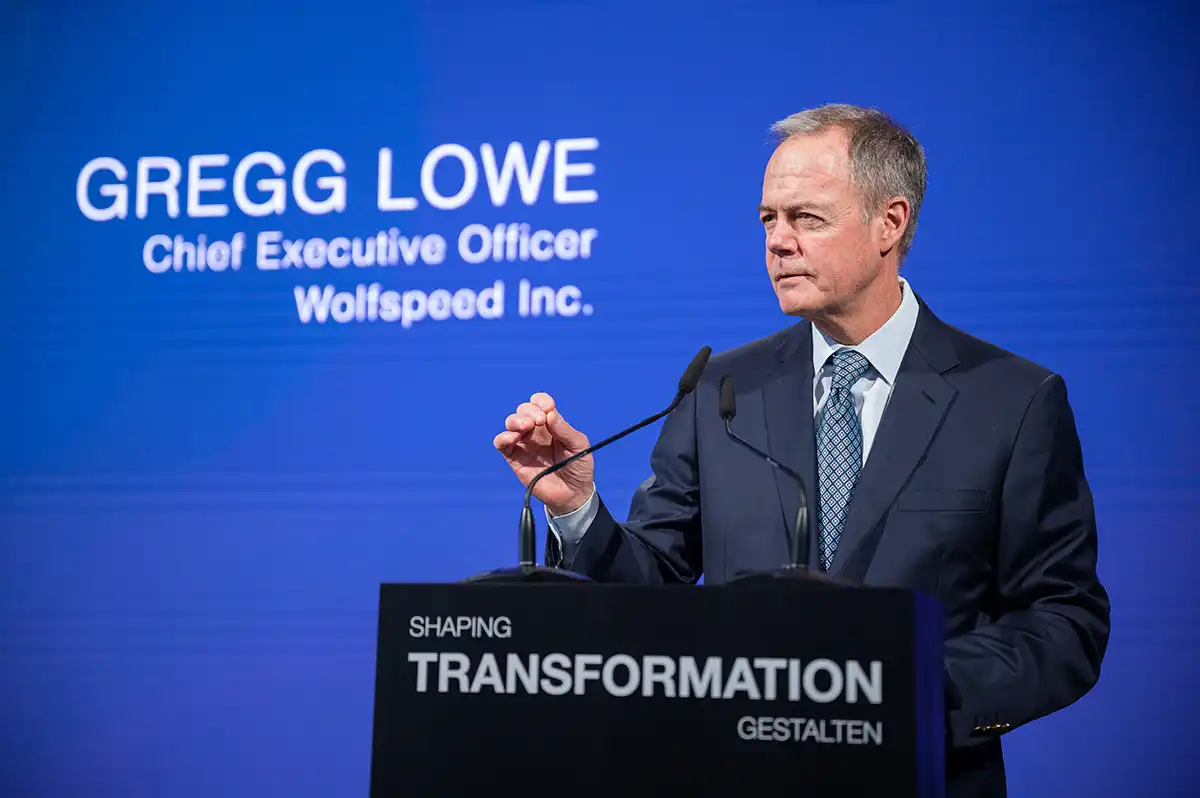U.S. chipmaker Wolfspeed has announced its plan to build a 200-mm silicon carbide (SiC) wafer fab and an R&D center with German automotive supplier ZF in Saarland, Germany. Construction is expected to begin in the next few months, provided the project receives approval of funds from the EU under the Important Projects of Common European Interest (IPCEI) framework.
The new fab is part of Wolfspeed’s US$6.5 billion global capacity expansion plan and will support its long-term revenue outlook of US$4 billion for fiscal year 2027.
The facility will focus on next-generation SiC products and processes for the entire power electronics industry, including the automotive, industrial and renewable-energy markets.
“Silicon carbide is the answer to some of the biggest issues of our time: energy savings and climate change,” Gregg Lowe, president and CEO of Wolfspeed, said in a keynote address at the opening ceremony in Saarland. “With SiC semiconductors, electric cars can go further and charge faster, helping to accelerate the transition from gasoline automobiles to fully electric vehicles. Solar farms can be more efficient and direct more clean energy to the grid, allowing us to reduce our dependence on fossil fuels, and many industrial applications will do their jobs more efficiently using less energy, enabling green energy to reach more people at lower costs.”
Wolfspeed to Build 200-mm SiC Wafer Fab in Germany
Wolfspeed CEO Gregg Lowe at the launch ceremony in Saarland, Germany
From coal mining to SiC manufacturing
The facility will be built on a 35-acre (14-hectare) former coal-fired power plant in Saarland.
Lowe sees here a reminder of our industrial past and a transition toward a cleaner industrial future. “Coal mining has created great value in this industrial area for more than 150 years. Today, with the planned state-of-the-art fab for silicon carbide semiconductors, we want to write the success story of silicon carbide chips in energy and power electronics.”
Bridging R&D and production
Wolfspeed and ZF announced they will establish a joint innovation lab to drive advances in SiC systems and devices for mobility, industrial and energy applications.
ZF will have a majority share in the R&D center and a minority share in the fab.
“We are building a bridge from the lab to the fab,” said Stephan von Schuckmann, a member of the ZF board of management and who is responsible for the Electrified Powertrain Technology division. “Our project is to create a complete and seamless value chain for semiconductors here at the core of Europe at an unprecedented technological level.”
ZF said it will bring its experience in electric driveline systems across various fields of applications, while Wolfspeed will bring its know-how in 200-mm SiC semiconductor manufacturing.
“We want to be leaders when it comes to energy efficiency, power density, temperature resistance and other critical KPIs,” von Schuckmann said. “For electric vehicles, this means more range, shorter charging times, smaller batteries and lower costs.”
Other collaborative partners will be invited to participate in the innovation process to establish an end-to-end European innovation network for SiC.
Wolfspeed to Build 200-mm SiC Wafer Fab in Germany
Stephan von Schuckmann, a member of the ZF board of management, at the launch ceremony in Saarland, Germany
Why Germany?
Germany is recognized for its excellence in engineering, and the German automotive industry is playing a key role in the global transition to electric mobility.
“We are sure that the talented people here in Saarland will help us build and operate a world-class semiconductor fab,” Lowe said.
The new fab will host over 600 employees and will create many more jobs in the region.
Subject to EU approval
The project was planned as part of IPCEI for Microelectronics and Communication Technologies and remains subject to state aid approval by the EU.
The IPCEI is a funding mechanism that supports cooperation projects with major synergies in microelectronics. “Without this funding, this project would not be possible in Europe,” Lowe said.
ZF Group CEO Holger Klein continued, “This project supports the goals of the European Chips Act, the [European] digital transformation and the European Green Deal. Europe shows here that, with the help of the IPCEI, it is possible to attract international investments even in times of great global competition.”
In June 2022, Bosch said it planned to invest €3 billion in its semiconductor business by 2026 as part of the IPCEI on Microelectronics and Communications Technology.
